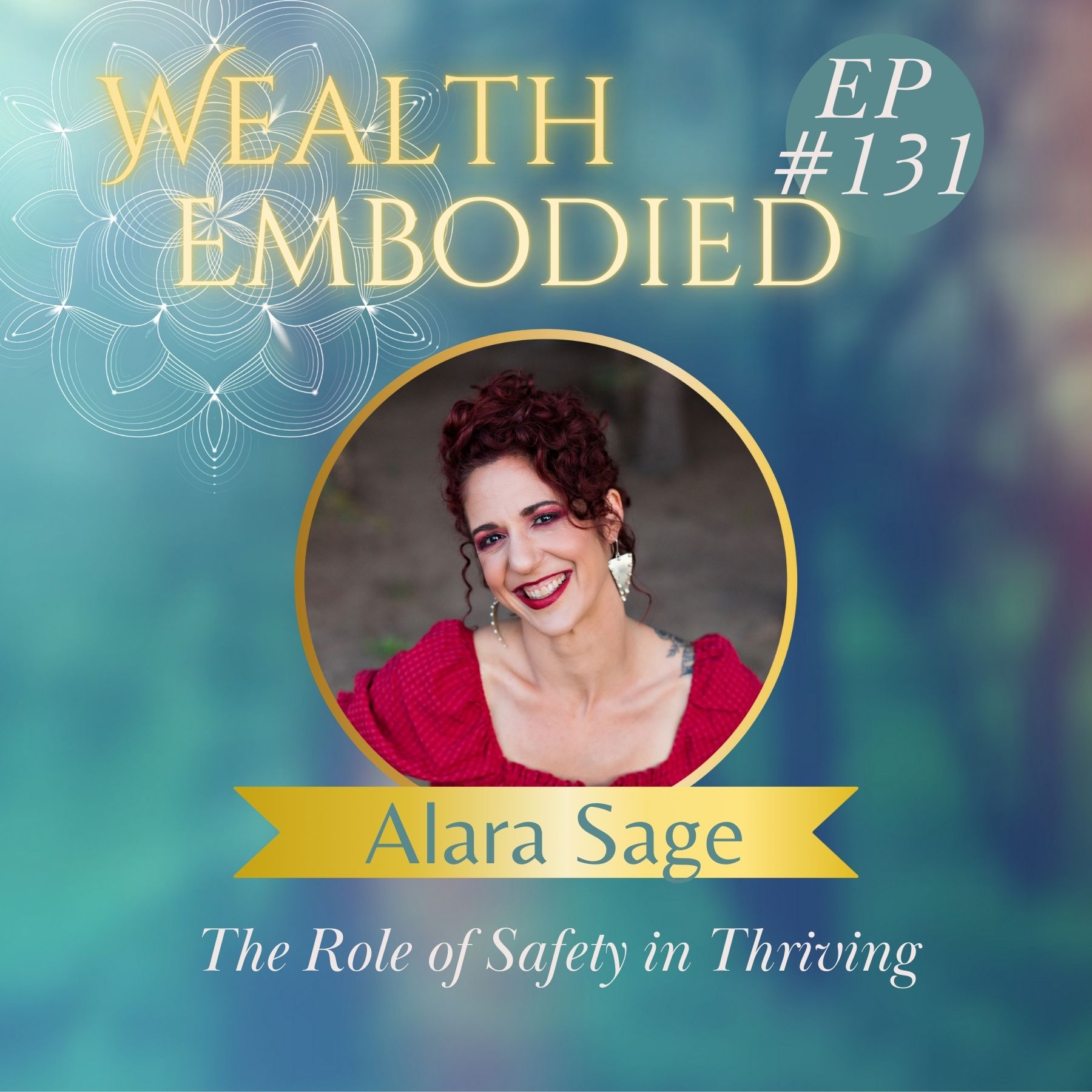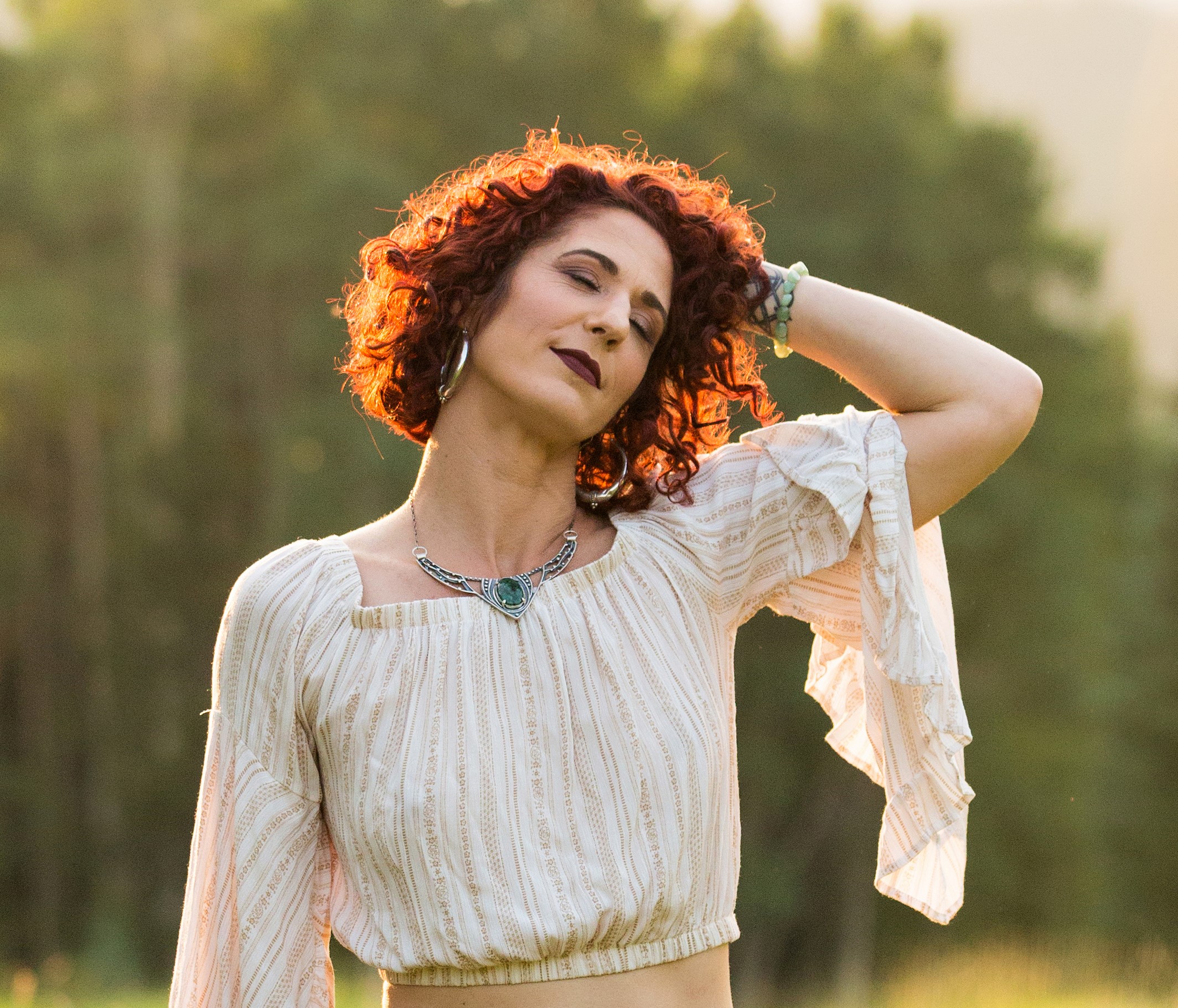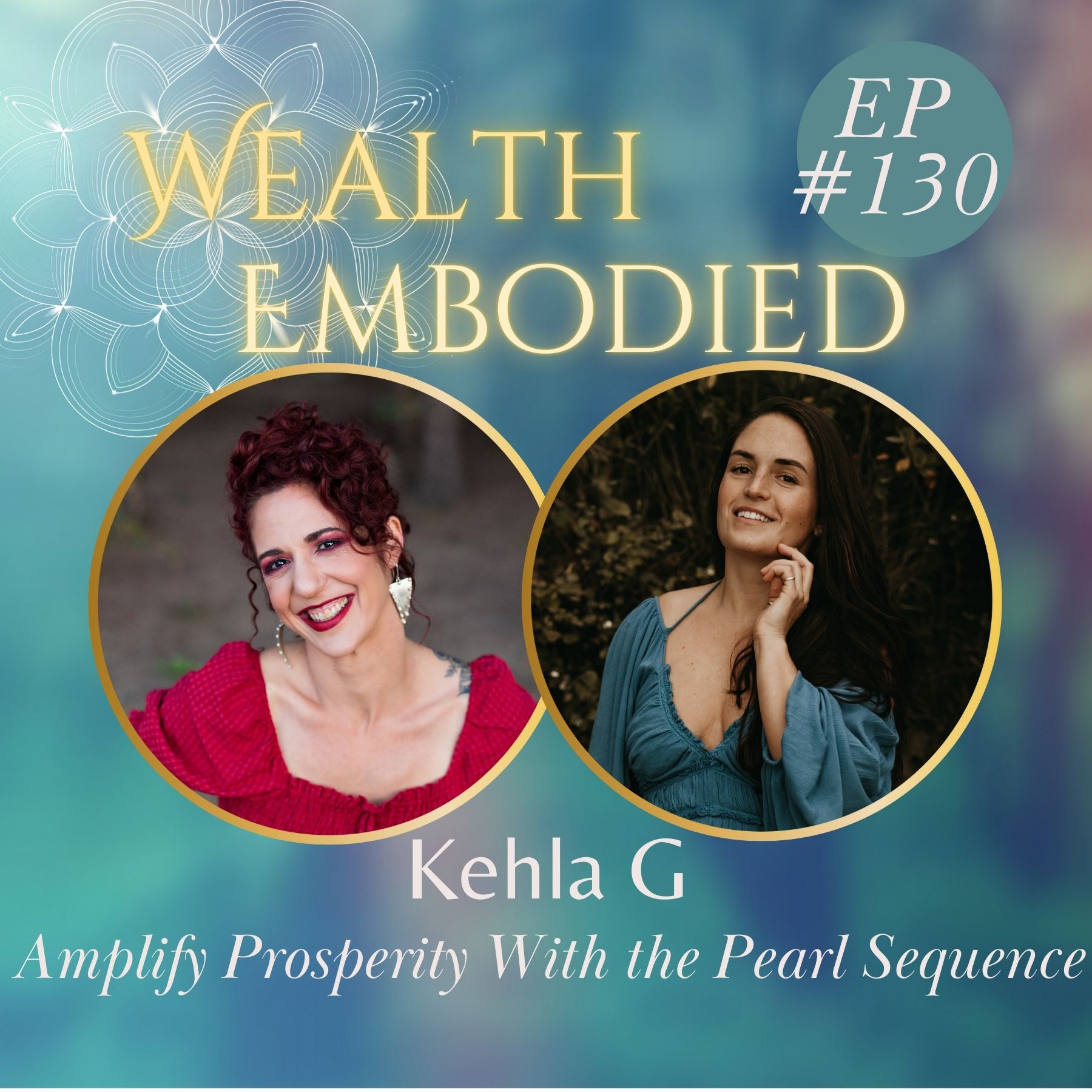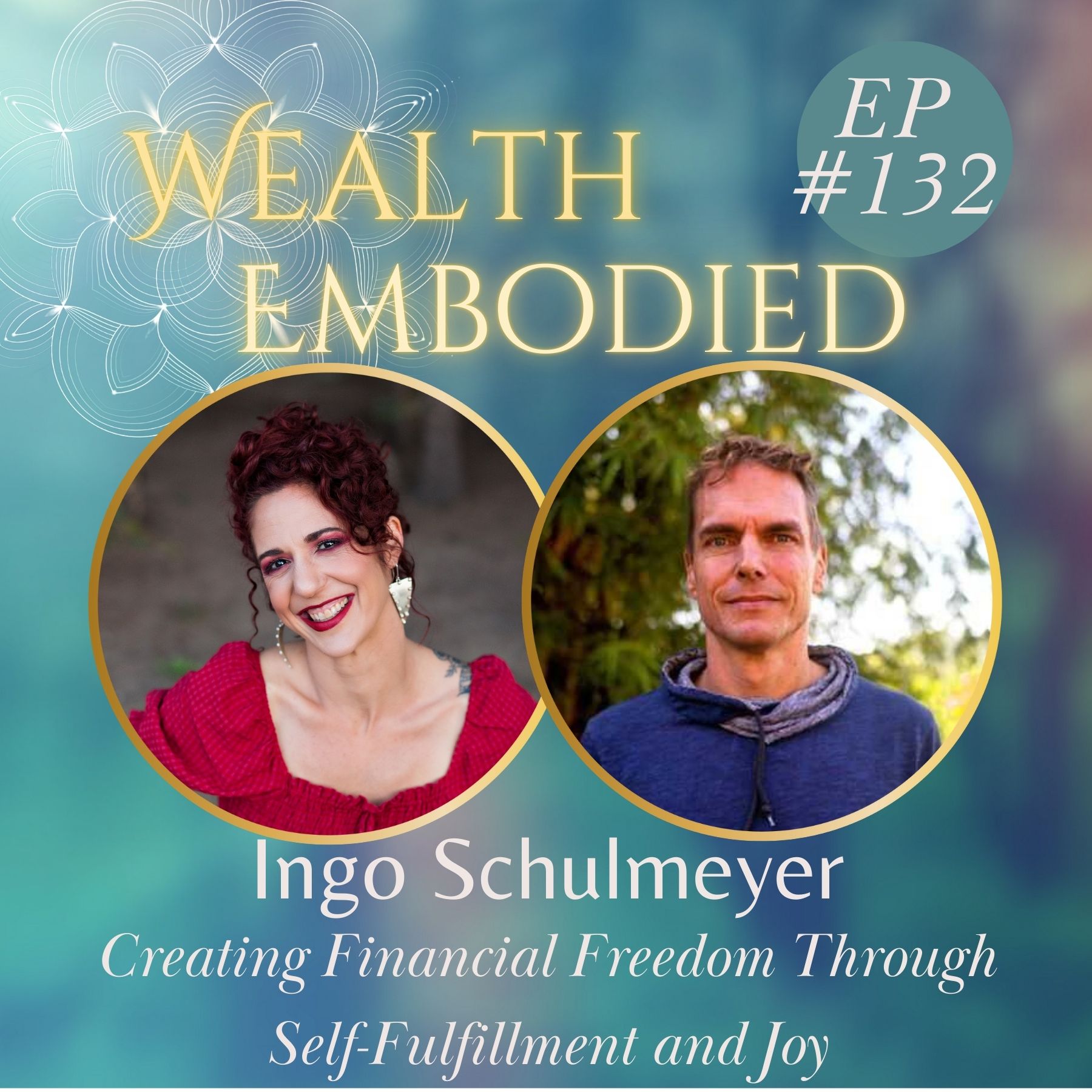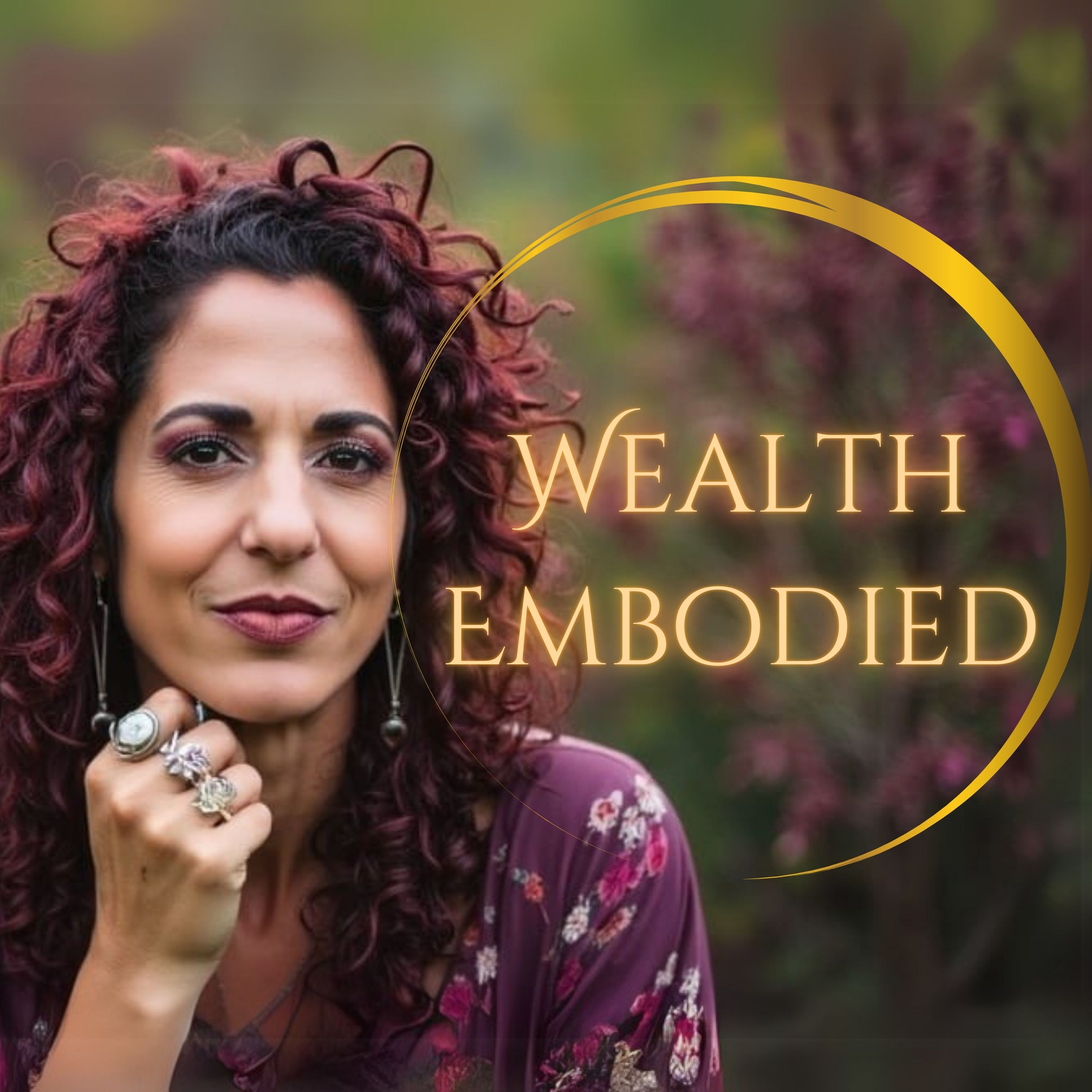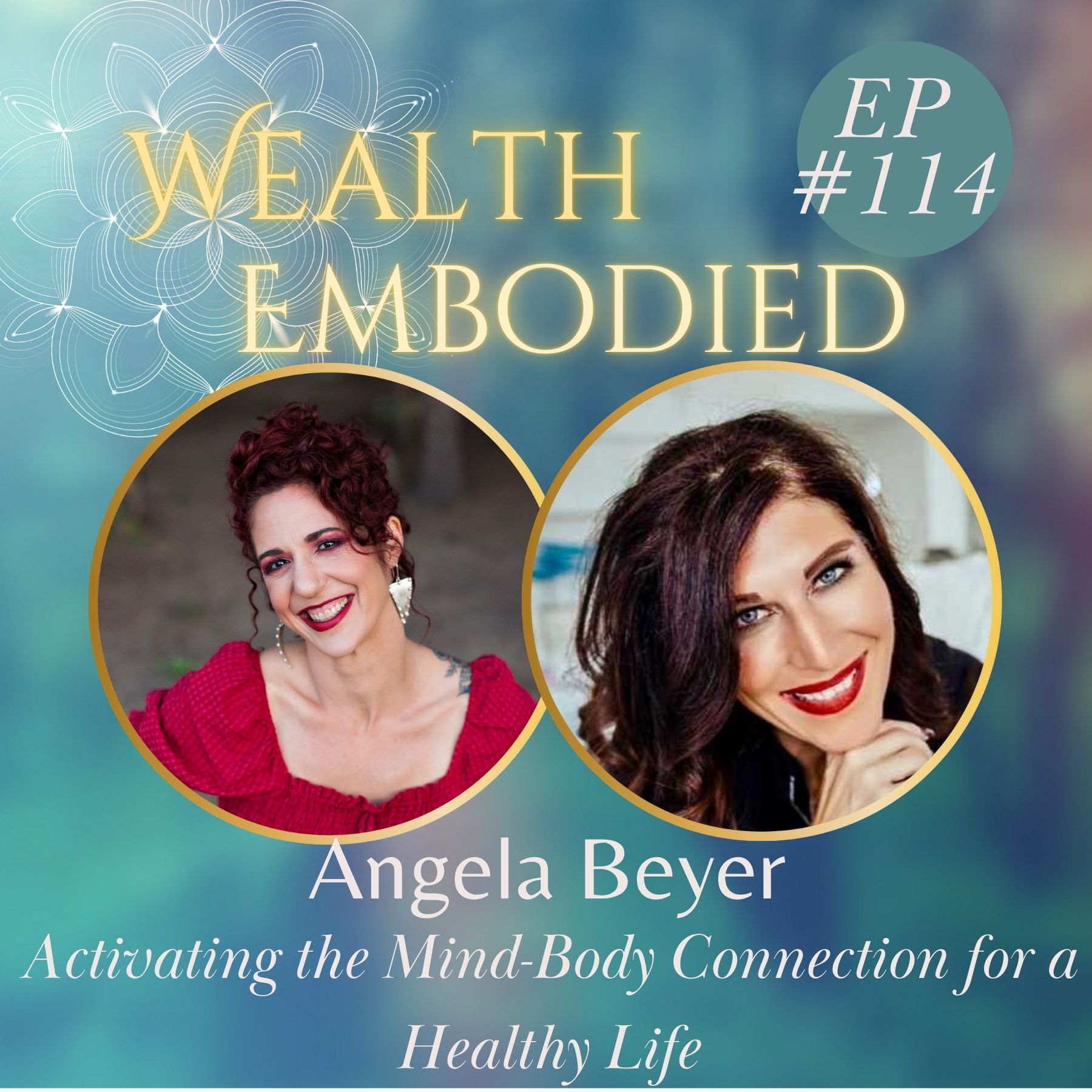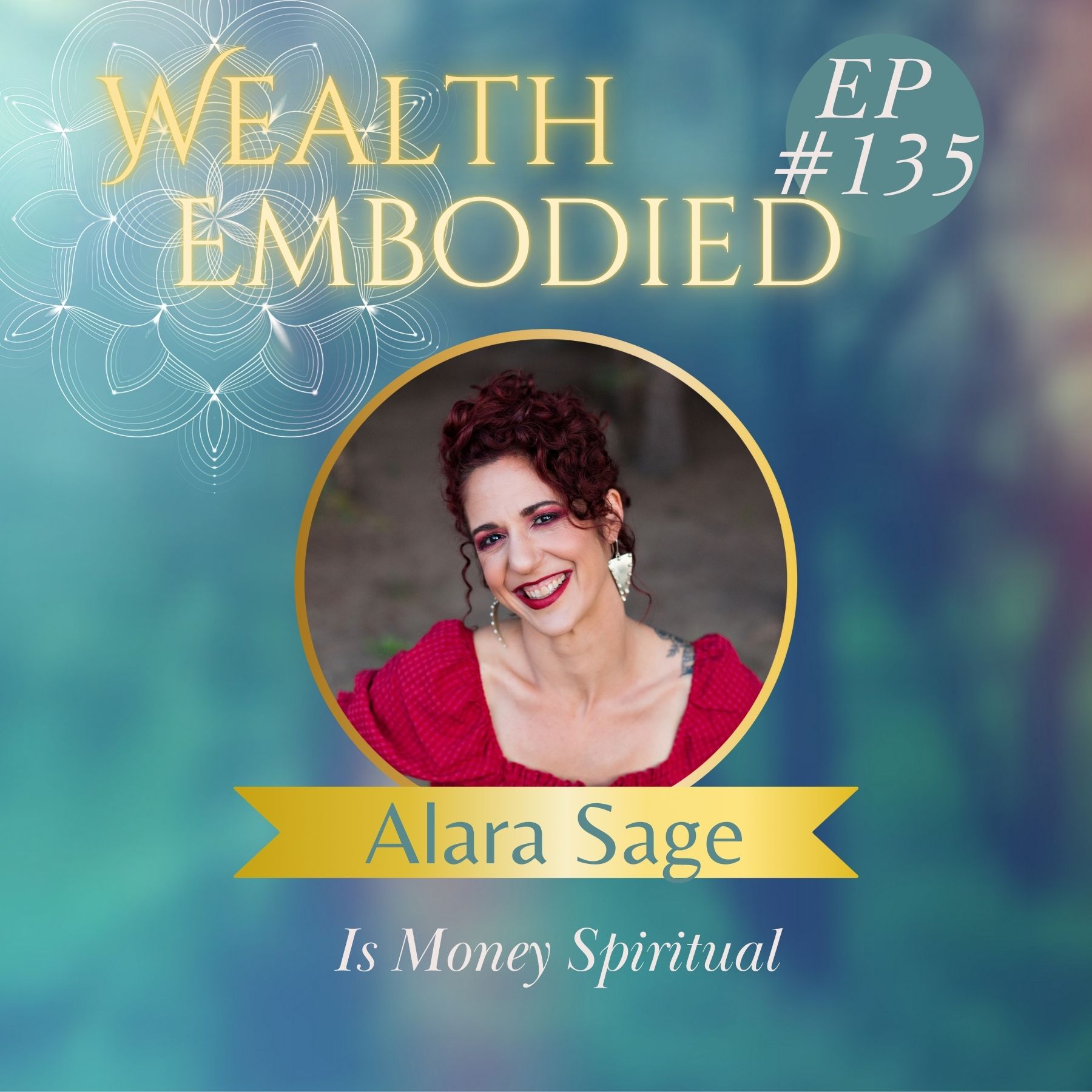Episode Transcript
Alara Sage (00:01.762)
Hello, hello, and welcome to another episode of Wealth Embodied, where we activate and inspire you in your wealth consciousness, in creative genius, and in your visionary impact. I'm your host, Laura Sage, and I help leaders, change makers, trailblazers to really embody the frequency of wealth so that they feel wealthy, they experience wealth regardless of external circumstances.
And from that embodiment, they create wealth, a wealth that is sustainable, a wealth that feels fulfilling. And what we're here to talk about today, wealth that feels safe. We often don't consider the conversation of safety when it comes to wealth. And it's a very important conversation to have. So today is a solo episode where it's just you and me.
and I'm going to go a little bit deeper into a topic.
Alara Sage (01:07.128)
Safety is something we think of when we are thinking about traveling alone. When we're thinking about even sometimes we think about risk, right? When it regards money, when it regards business, but we don't necessarily have the conversation of safety. We just talk about, is there a risk? How big is the risk?
What I'm referring to when I say safety is a felt sense of safety. I'm not actually referring to whether a decision or a choice is quote unquote, lack of risk, right? Safe in the potential results.
Alara Sage (01:59.872)
safety in that context, speaking to the potential results of a decision being most likely safe, is usually actually what we refer to as your comfort zone. Making decisions inside your comfort zone, making decisions with little to no risk. And you probably already know that it's a known fact that inside of our comfort zone,
We don't tend to expand to grow that much. It's where we're stepping outside of our comfort zone. It's where we are taking risk that we actually yield the largest results, either negative or positive. But the larger results, they do indeed present themselves. But today, we're talking about a felt sense of safety.
I've spoken about this before. The importance of this is, is that you cannot truly thrive if you do not feel safe in your body.
you will actually be in a survival mode, whether it is a conscious survival mode or a subconscious survival mode. Your nervous system will be reacting to your physical reality as if you were not physically safe.
Alara Sage (03:36.554)
When we experience true safety, we are grounded, we are present, we are able to make decisions, lack of emotion, making decisions instead from a place that is connected to our inner authority, our intuition.
Alara Sage (04:02.924)
A sense of safety generally originates in early childhood. So those first seven years of life, we are sponges. Our brain waves are actually in a lower state of consciousness. Well, lower brain waves. Let me rephrase that. Our brain waves are lower and we are simply in this very open, very receptive
almost even specifically the younger years, a trance-like state, right? So in those early, you know, baby years, you can absolutely see how a baby is in a trance-like state. And then as we come into toddler, early toddler and young child, we start to engage more with life, but we are still very much in this very open, receptive state of being.
The reason that is, is so that we can learn very rapidly from our environment to survive. But those first seven years are really going to dictate whether you fundamentally feel safe in your body, whether you fundamentally feel safe, regardless of what's happening outside of you. And oftentimes we tend to think, well, I didn't have a traumatic childhood.
So, you know, I'm all good. Of course, if you did have a traumatic childhood, you're probably aware of how much that has affected you. But if you didn't or your family was pretty normal or, you know, you don't remember anything that was substantial, you might not consider this to be an issue for you. However, you'll find that this can come up over and over again for yourself where
You may have the symptoms of fundamentally not believing that you're safe in your life, safe in your body, safe in your reality, safe in your surroundings. The symptoms of not feeling safe, not believing that one is truly safe is having some anxiety, having worry, having high levels of stress.
Alara Sage (06:26.498)
being hyper focused on things that are outside of you. So if you had a challenging moment with another person that you would fixate on that and repeat that over and over in your head along similar lines, if you made a choice that led you down a particular road, you would have regret. You would go back and play that choice over and over in your head. This is attachment to
external circumstances. You may look for advice. You may look for information. A lot of people who don't feel and believe that they are fundamentally safe can really be addicted to information. A lot of humans have found, you know, a sense of safety in the mental body, a sense of safety in information and knowledge.
but that isn't a true belief of safety. It's different. So if you are somebody who wants to know everything that's going on in the world, what's happening, where's the economic system, what's happening in politics, or, and you are a person who continuously wants to learn more, that could also be a fundamental belief that you are not safe.
and an overcompensation in that area. Another way that this can show up is, you know, really working to have a strong network of people and being very insistent upon, you know, that close network of people, the friends, the coworkers, whoever it is, and really finding that felt sense of safety through
network through community, through friends, right? So if you have a very close knit friendship with, particularly it happens with more than one person, know, a couple of friends and you're always together and you're always hanging out, you're always doing things, this can imply that you don't believe that you're fundamentally safe.
Alara Sage (08:43.882)
any challenge with change where you either have to feel like you know everything that's going to happen and plan for it and be ready for it. You're not available to the unknown. You're not available to potentials that you haven't thought through, right? You have to sit down and think through everything and believe to some degree that you
have it all figured out of how it's going to work out. This can also be a belief that you are not safe. Any extensive amount of planning is very similar, right? Going on a trip and you have to plan everything to the T because again, you don't want to have something that is unknown. And as I kind of alluded to also with change, Not feeling really safe to allow change to happen.
You might find yourself trying to control change. And of course, any level of control is also along these lines of not believing that you're fundamentally safe. Whether that is trying to control yourself, trying to control your house, trying to control your family, your coworkers, you know, perhaps if you are a leader or a boss, you know, trying to control those underneath you. Control, control, control.
It can also show up as a insistent, incessiveness on cleanliness, controlling your environment that way. And again, that fear of, you know, if everything isn't clean, if everything isn't perfect, you know, something will happen, right? So those are just some examples of ways that a belief, subconscious belief, let me make that clear.
This is a subconscious belief, meaning most likely you're not very aware of it. It's not like you're walking around saying, gee, I really don't feel safe. No, by now, particularly in your life, you have a lot of coping mechanisms. You have ways that are very much like a pacifier that pacify your sense of unsafety and help you feel safe.
Alara Sage (11:06.028)
So that's a lot of what I mentioned, like the cleanliness, the planning, the having the close knit friends. These are all pacifiers to a fundamental belief of unsafety.
So it's really important to see if you can identify with any of this. And if some of this conversation triggers you, makes you feel uneasy, right? Then you might have a subconscious belief that you're not fundamentally safe. So again, this comes from our early childhood, zero to seven years usually. And it has nothing to do with whether you were in an abusive family or not. There are lots of different things that
can contribute to these kinds of beliefs. One of them is simply that some people are meant to go through this process. This is one of their lessons in life. In human design, if you have an undefined rachakra, there's going to be a level of this in your life. You're going to feel a sense of unsafety, unrootedness, ungroundedness in your life. So one, you...
It might just be part of what you're here to experience and learn how to work through. Two, there are lots of different things that could have happened in your family that didn't make you feel safe. For instance, the cry it out technique that was used for many years really was not creating a sense of safety for babies. Your needs weren't met.
When you were upset, nobody was there to support you. Okay. And that will translate into your needs aren't met. And when you feel upset, the universe is not there to support you. have to pacify yourself. Right. That's what the teaching was. That's what the cry out method was. It was to teach babies to pacify themselves, but babies aren't meant to pacify themselves. They are meant to feel
Alara Sage (13:11.266)
believe and trust in those who are taking care of them. And that gives them that sense that the universe that they are always supported, that they are always a lot, they're always cared for seemingly from outside of themselves, but it never is truly. So if your mother or your parent or your guardian or whoever had you go through the cry out method, then you could fundamentally feel this way. Also, if you're
parents, your guardians just had a lot of children. Oftentimes there isn't, you know, the luxury of getting to everybody's needs. Specifically with twins, this can happen a lot, but even close siblings, you know, close in age where one is upset and the parent is appeasing the one and the other one too is upset, right? There's only so many hands. There's only so much that we can do. Another thing is if you
were weaned off of breastfeeding or didn't ever breastfeed, right? There's a lot of communication that goes on with the heart chakra of the mother and the heart chakra of the baby and hormones that are released throughout the process of breastfeeding that also, again, help the child feel safe. know, going to...
preschool, being dropped off at preschool, being dropped off at sitters, all of these things, you know, they're not abuse, right? There's no abuse involved in any of that. And it's not to say all of those create a sense of unsafety, but they can, along with a bunch of other things that you may not even remember, right? Because if it is early in your childhood,
These things aren't really stored in our memory. So, you know, why you feel unsafe isn't always the important question. The important aspect of this conversation is to ask, do I feel safe? You know, do I have subconscious beliefs where I don't fundamentally believe that I'm safe? And how do I shift out of that? Because how this shows up in wealth,
Alara Sage (15:29.49)
is that you will be placing a lot of your sense of safety in money, in investments, in, you know, security eggs, security blankets, whatever you want to call them.
you won't feel safe to be in sometimes that edgy riskiness that does really create expansion. And sometimes we are asked to do as well as you can be attached to the outcome of your choices with regards to your wealth. Because if you believe subconsciously that your safety security revolves around how much money you have,
If you make a choice that regards money, you're going to be attached to that outcome. And anytime we attach ourselves to an outcome, we're not truly available to first off, what is the right choice of action for us? What is most aligned? What is most powerful? And then also the magic that could potentially unfold through those decisions. When we are attached,
We are reacting emotional and we are therefore creating limitation for ourselves. I even saw recently a financial advisor who said blatantly, money is emotional. But you will hear, I've heard my best business mentors say that you have to detach emotion.
from money. You cannot think of money from an emotional state of being. And I agree with that. And I feel like that happens when you don't necessarily believe that you are fundamentally safe and secure. Okay. So if you're finding your choices of whether I should buy this or not, what should I do with my money? Do I have enough money? How do I bring in more money? All of these
Alara Sage (17:42.84)
questions and choices around money. If those questions and choices are triggering emotional responses within you, then you fundamentally don't believe that you are safe. So then the process becomes to acknowledge that and to start to shift those belief structures within you. awareness is always the first step. The awareness of what is the belief.
You know, I am not safe. I am not supported. I am not cared for by the universe, whatever that limiting belief is to acknowledge it, to notice how does that limiting belief show up in your life? Okay. What triggers the limiting belief? What habits, patterns, behaviors do you have already in place that are from that limiting belief?
Right? Because you will see, if you can see the limiting belief clearly in your life, you will see how it creates certain habits, patterns and behaviors. Okay. And then it's a matter of destructurizing those habits, patterns, behaviors, choosing to act differently, choosing to create different habits, patterns, behaviors, as well as addressing yourself emotionally.
when you get triggered, right? So learning how to breathe into your body, learning how to shift that energy, learning how to be there for yourself in that moment, rather than turning to one of those pacifying habits, actions that you tend to do in order to appease yourself. understanding what those are and breaking that chain so that you're no longer just coping
you're actually transforming yourself out of that. So action is really the third step to transmuting the limiting belief. The first step is awareness. The second step I didn't mention, apologies, is acceptance, right? Accepting that you have these habits, these patterns, these behaviors, accepting that you subconsciously believe that you're not safe.
Alara Sage (20:02.732)
accepting that it's caused certain issues in your life because it will have accepting all of that loving yourself with all of that. And then that'll lead to step three, which is the action where you get to change your behavior, change your personality, change how you show up into a state of I am safe, regardless of how much money I have. I am safe, regardless of what the outcome of my choices are. I am safe. I am safe.
So very, very powerful work. This is one of the fundamentals that I work with people because it is so rampant in humanity. I would say the vast majority of humans do not believe that they are fundamentally safe. We're not taught to in our society. So if this is something that really stands out for you, you can absolutely reach out to me. I'm happy to support you and working through this so that you can have groundedness
presence so that you can really make choices from a place of I am safe, am supported rather than I'm not safe, I'm not supported and see how that radically transforms your life and your physical reality and your wealth, your wealth, your wealth, your wealth. So this might be the missing key for you, the missing point for you. If wealth has been a struggle to create, if wealth has been a struggle to maintain,
And if you struggle to maintain, to hold on to wealth, this could be a key for you. So I hope it has really helped you. look forward to hearing from you. can always schedule a connection call with me. The link is here in the show notes. I'd be happy to speak to you about how I can support you.
And as always, every Thursday we have our guest episodes. We've got a lot of a really great lineup coming of all different kinds of people with regards to wealth. I'm trying to really change it up a lot and bring in different perspectives on wealth to help you guys, to support you guys in your process of wealth embodiment. I love you all so very much. Until next time.
